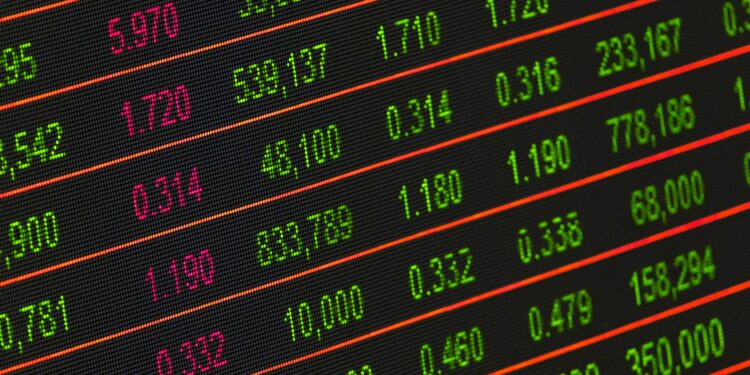U.S. Recession Fears Trigger Historic Losses in Japan and Worldwide
Yesterday, the global financial markets faced a severe downturn, with Japan’s Nikkei 225 experiencing an unprecedented suspension of futures trading due to a circuit breaker. The index plummeted 12% in a single day, marking its worst performance since the 1987 Black Monday crash on Wall Street. This catastrophic event sent shockwaves through global markets, sparking fears of an impending U.S. recession.
Nikkei 225: A Historic Collapse
The Nikkei 225’s dramatic 12% drop represents one of the most significant declines in Japanese market history. This sharp fall was triggered by escalating concerns over the global economic outlook, particularly the fear of a recession in the United States. The suspension of futures trading, a rare occurrence designed to prevent panic selling, underscores the severity of the market’s turmoil.
U.S. Stock Futures Plummet
The impact of the Nikkei’s collapse was felt immediately across the globe, particularly in the U.S. stock market futures. Here’s a snapshot of the current state:
- S&P 500 futures: Down 2.8%, following a 1.8% loss on Friday.
- Nasdaq-100 futures: Down 4%, with big tech stocks bearing the brunt of the early trading.
- Dow Jones Industrial Average futures: Dropped 778 points, or 2%, after a 611-point loss on Friday.
The primary catalyst for this global sell-off is the mounting fear of a U.S. recession. Investors are reacting to the disappointing July jobs report released on Friday, which has heightened concerns about the Federal Reserve’s response to the economic slowdown. The Fed’s decision to maintain interest rates at their highest level in two decades, rather than cutting them to stimulate growth, has further exacerbated market anxieties.
Cryptocurrency Market Takes a Hit
The cryptocurrency market was not spared from the turmoil. Bitcoin, the leading digital currency, saw a steep decline, trading down 16%. This drop reflects the broader sentiment of uncertainty and risk aversion among investors, who are fleeing to safer assets amidst the market chaos.
Major Tech Stocks Suffer Significant Losses
The sell-off extended to major technology stocks, with some of the biggest names in the sector experiencing substantial losses:
- Amazon (AMZN): Down 6%
- Tesla (TSLA): Down 9%
- Nvidia (NVDA): Down 12%
- AMD (AMD): Down 6%
- Apple (AAPL): Down 7%
- Coinbase (COIN): Down 16%
These declines are indicative of the broader market sentiment, where investors are pulling back from high-risk, high-reward assets in favor of more stable investments.
Recession Fears and the Federal Reserve’s Dilemma
The root cause of this market upheaval lies in the growing fears of a U.S. recession. The July jobs report, which fell short of expectations, has intensified concerns that the U.S. economy is slowing down. This has placed immense pressure on the Federal Reserve, which is now faced with a difficult decision: cut interest rates to stimulate the economy or maintain the current rates to combat inflation.
The Fed’s decision last week to keep interest rates unchanged has been met with criticism from some market participants who believe that a rate cut is necessary to prevent a recession. The central bank’s stance reflects its cautious approach, balancing the need to support economic growth with the imperative to keep inflation in check.
Global Market Implications
The ramifications of the Nikkei 225’s collapse and the subsequent sell-off in U.S. futures are far-reaching. Global markets are interconnected, and turmoil in one major economy can quickly spread to others. The current situation highlights the fragile state of the global economy, where uncertainties in one region can trigger a domino effect across the world.
Investors are now closely watching for any signs of intervention from central banks, particularly the Federal Reserve, which could help stabilize markets. However, the path forward remains uncertain, with economic data and policy decisions likely to drive market sentiment in the coming days and weeks.
The suspension of Nikkei 225 futures trading and the subsequent global market sell-off underscore the heightened volatility and uncertainty in today’s financial markets. As fears of a U.S. recession loom large, investors are grappling with a challenging environment, marked by significant losses across various asset classes. The Federal Reserve’s upcoming decisions will be crucial in determining the trajectory of the markets, as stakeholders look for signs of stability and reassurance amidst the ongoing turmoil.
This period of market turbulence serves as a stark reminder of the interconnected nature of the global economy and the pivotal role of central banks in navigating through crises. Investors must remain vigilant, prepared for further volatility, and responsive to the evolving economic landscape.











